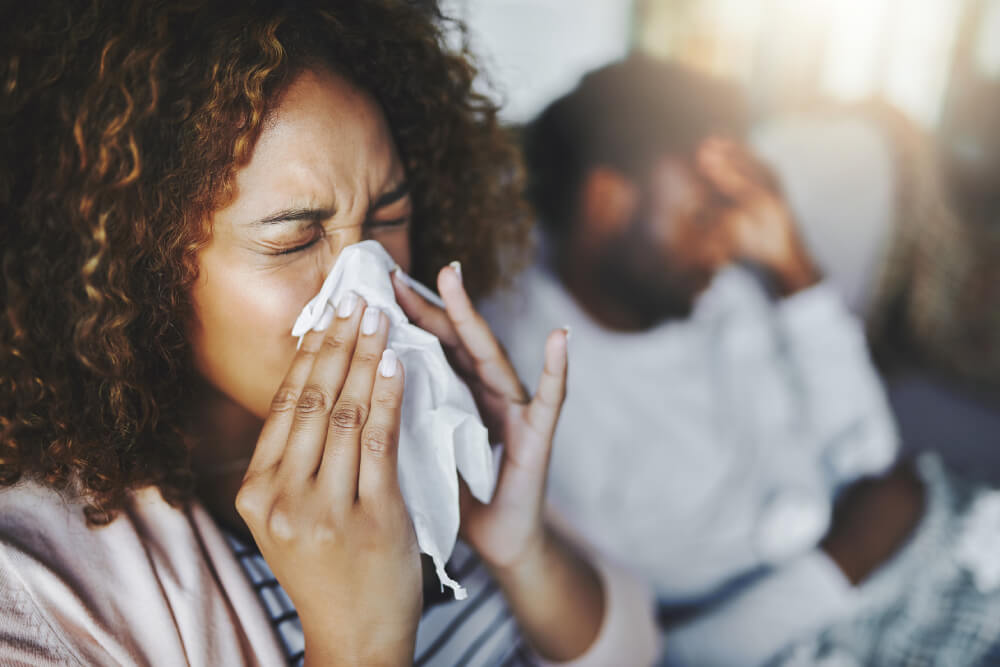Air Purifiers for Allergies: Do They Make a Difference?
Allergies can be a constant struggle for the millions of people dealing with them daily. Common symptoms such as sneezing, itchy eyes, and a scratchy throat can be triggered by various allergens, including pollen, dust mites, mold spores, and pet dander. Even indoors, the air we breathe can be filled with these irritants, potentially affecting our overall health and well-being.
Given these challenges, many turn to air purifiers for relief. But do these popular devices live up to their claims? Is it all just marketing hype, or can air purifiers truly make a difference? Let’s explore the facts.
Understanding Allergies and Indoor Air Quality
Ever wonder why your body reacts to things like pollen and dust? According to the Asthma and Allergy Foundation of America (AAFA), allergies occur when your immune system mistakes harmless substances for dangerous threats2. In other words, all that sneezing is just your body’s way of trying to get rid of what it thinks will harm you.
Everyday activities can also contribute to poor air quality. For instance, cooking can release tiny particles and fumes into the air, while smoking introduces harmful chemicals. What’s more, many common household products, such as cleaning agents, paints, and air fresheners, release Volatile Organic Compounds (VOCs) into the air. VOCs are gasses that can affect your health and contribute to indoor air pollution.
With such a multitude of potential triggers present, it’s clear why people are increasingly turning to advanced air purification solutions to ensure cleaner, healthier air in their homes.
How Air Purifiers Work
Air purifiers work by pulling in air and trapping tiny pollutants in their filters, releasing clean air back into the room. This cycle repeats several times an hour to maintain pure and healthy air indoors.
Purifiers come in different sizes, from portable units for single rooms to larger models built into HVAC systems for whole-home or large-scale use in offices and industrial spaces.
There are two main types of filters: High Efficiency Particulate Air (HEPA) and activated carbon. HEPA filters capture microscopic allergens like pollen and mold down to 0.003 microns, while activated carbon filters remove odors, harmful gasses, and Volatile Organic Compounds (VOCs), like formaldehyde.
Therefore, for allergy sufferers, HEPA filters seem to be the way to go. But do they really provide relief from symptoms?

Do HEPA Air Purifiers Really Help With Allergies?
The science says yes! Studies published in peer-reviewed medical journals such as the International Archives of Allergy and Immunology3, and the Journal of Allergy and Clinical Immunology4 confirm HEPA air purifiers significantly reduce allergy triggers by removing up to 70% of allergy-causing particles.
So, while this is great news for allergy sufferers, before rushing out to buy the first HEPA purifier you come across, consider these crucial factors first:
- Clean Air Delivery Rate (CADR): This rating measures how much clean air a purifier can deliver to a specific room size. A higher CADR is better for larger rooms. Aim for a CADR that’s at least two-thirds the size of the room you want to use it in
- Air Changes per Hour (ACH): The ACH tells you how often the purifier cleans the air every hour. Research studies recommend an ACH of 4-5 times an hour for your room size.
- Third-Party Lab Verification: Look for purifiers independently tested and verified to meet filtration standards, rather than relying solely on marketing claims.
Keep in mind that while it may be tempting to buy the least expensive HEPA option available, prioritizing quality over price ensures long-lasting allergy relief.
Breathe Easy with AirDoctor
- Vacuum and dust frequently, especially during allergy season.
- Reduce clutter to prevent indoor allergen accumulation.
- Consider using a dehumidifier to reduce moisture levels that promote mold growth.
- Replace your filter on schedule: follow your air purifier’s recommended filter replacement schedule.
- Use allergen-proof bedding and wash in hot water frequently.
- Bathe pets often, and groom them outside when possible.
- Run your purifier on auto-mode, especially during allergy season for consistent purification.
Pairing these easy steps with a high quality air purifier like AirDoctor will give you clean air and lasting allergy relief.
So, breathe easier and start enjoying a more comfortable, allergen-free environment today!
Citations:
- https://www.cdc.gov/nchs/pressroom/nchs_press_releases/2022/20220126.htm
- https://aafa.org/allergies/
- https://www.ncbi.nlm.nih.gov/pmc/articles/PMC7265772/
- https://www.jacionline.org/article/0091-6749(90)90050-E/pdf
